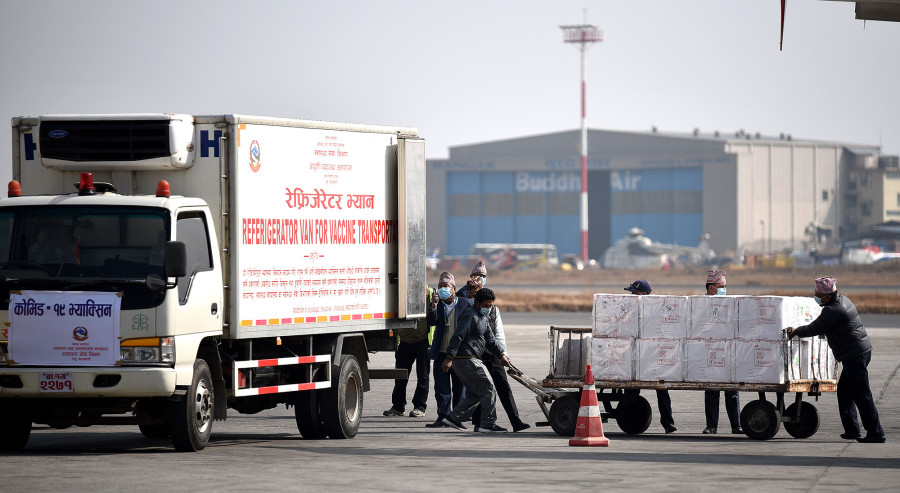Editorial
Pork barrel politics
Spend the Rs6.56 billion on vaccines, not some dubious partnership programme.
After dissolving the lower house of Parliament, Prime Minister KP Sharma Oli has called snap polls for April 30 and May 10. Whether the planned elections will happen is still up in the air, as it will depend on the Supreme Court which has been conducting a hearing on about a dozen writ petitions filed against Oli’s House dissolution move. Political forces like the Nepali Congress and Janata Samajwadi Party as well as a faction of the Nepal Communist Party led by Pushpa Kamal Dahal and Madhav Kumar Nepal who have parted ways with Oli are also protesting the dissolution. If the court overturns the government decision, politics will return to Parliament; and if not, there will be no option for the country than to go to the polls. Oli and his loyalists, however, appear in a poll mood already, and they seem to be out on the hustings.
Amid this, there were concerns about releasing funds for a controversial lawmakers-led programme. But on Monday, the government, which has officially turned into an election government, decided to release Rs6.56 billion for the Local Infrastructure Development Partnership Programme. The scheme has faced criticism even during normal times for being distributive, as it gives ample room for misuse of the funds because it is mainly run by local consumer committees usually at the behest of political party cadres. Earlier, the programme was under two headings—Constituency Infrastructure Special Programme and the Constituency Development Programme.
When the Oli government was going to present its first budget, there were calls from several quarters that such a distributive programme must not be continued. However, the then finance minister Yuba Raj Khatiwada could not resist pressure from lawmakers, and continued with the Local Infrastructure Development Partnership Programme, under which Rs4 million is released for each constituency to be spent for various development projects under the supervision of the concerned lawmaker. After the pandemic-induced lockdown stalled the implementation of development projects, the government in the last fiscal year 2019-20 decided to use the unspent money to fight the Covid-19 pandemic.
But this year, the government decided to release the funds even as the elections have been declared. What, however, is problematic is how the government can release money for those who were supposed to utilise it when they held a certain position—the budget is meant for lawmakers-led projects. But since there is no House, those under whom it was to be spent cease to be lawmakers. A major concern is distributing the money from the state coffers when the elections have been declared because those who were lawmakers until December 20 could influence voters and have an edge over others. This means there will be no level playing field. In a country like Nepal where power is based on the pork barrel and exercised on patronage, distributing money just when there are only 92 days left for the first phase of voting, if the elections do happen, is plain wrong.
The Election Commission, which had enforced a poll code of conduct three months prior to voting during the 2017 general elections, however, has taken a nonchalant attitude to the government's decision to release the budget. The commission is mandated to keep a watch on government activities once elections are declared, but it has said it can talk about the issue only after the poll code of conduct is announced. Releasing the budget for such a programme does not go well also because the country is currently fighting the pandemic, and struggling to generate resources for procuring Covid-19 vaccines. In what is tantamount to standing before the world community with a begging bowl, the government has sought help from donors, philanthropic organisations and businesses to pour money into its 'vaccine fund'.
If the elections happen, at least Rs20 billion will have to be spent from the state coffers. The government has estimated that it will require around Rs48 billion to inoculate all eligible citizens in the country. Only when people are safe and protected do development works mean something. It’s not too late to channelise the budget, which is highly likely to be misused, towards procuring Covid-19 vaccines and other pressing needs.




 13.12°C Kathmandu
13.12°C Kathmandu














